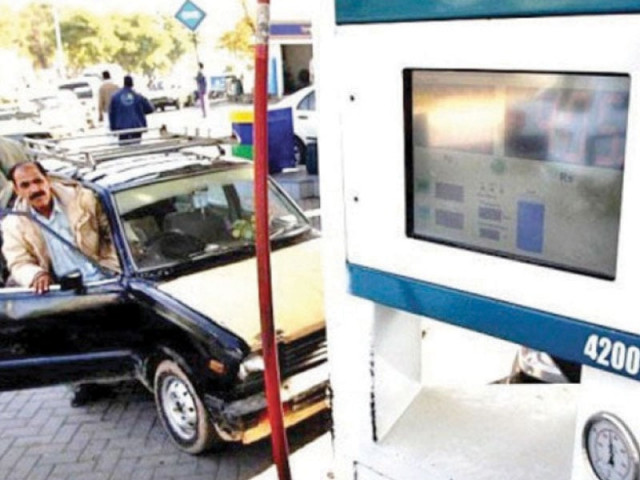OGRA approaches decision-makers for resolution of CNG prices issue
Higher-ups still undecided on how to control demand and supply of fuel.

The Oil and Gas Regulatory Authority (Ogra) has approached the petroleum ministry and the Cabinet for the immediate finalisation of the CNG policy.
“We have held a meeting on Friday with the petroleum ministry, and have asked for a resolution to the issue of CNG policy guidelines which will help fix CNG prices in line with the orders of the Supreme Court,” an Ogra official said; adding that a letter was also written to the Cabinet in order to expedite the process.
Sources told The Express Tribune that Law Minister Farooq H Naek, in a meeting of the Economic Coordination Committee (ECC) held on December 18, had warned the ECC that the masses could turn against the ruling party in the upcoming elections if CNG prices were linked to 80% parity of petroleum prices as proposed.
However, insiders said that the majority of decision-makers supported the linking of CNG price to 80% parity of petroleum; arguing that the country’s gas reserves were depleting fast and that the price hike would discourage its use in the transport sector.
During the ECC meeting, Information Minister Qamar Zaman Kaira and Finance Minister Dr Abdul Hafeez Sheikh also said that Ogra played an important role and could not be dissolved – in a rebuttal to the demands of the petroleum ministry, which wants to bring the regulator under its control. They also pointed out that every country has a regulatory body, and that Pakistan cannot be an exception to that rule.

Cabinet Secretary Nargis Sethi also pointed out that the ECC had no jurisdiction or authority to resolve the issue of CNG prices on its own. She said that the provinces were involved in the issue and that it should be referred to the Council of Common Interests (CCI).
After a heated debate on the issue, a sub-committee was formed that will work on a resolution to the matter.
An official of the petroleum ministry said that the Supreme Court had observed that CNG prices could be linked to an alternate fuel. Therefore, its price would be set at 80% parity with petroleum prices to discourage its use. The rate of the Gas Infrastructure Development Cess (GIDC) will also be enhanced to bring the price of CNG to 80% parity of petrol, he said.
He reiterated that the petroleum ministry wishes to restrict the use of CNG to the public sector only in order to discourage its widespread use, and that the matter will be taken up before the sub-committee.
According to the petroleum ministry, the consumption of gas as CNG fuel has witnessed explosive growth in the last 6-7 years. Unfortunately, much of this growth has happened at a time when the supply of gas has not witnessed any significant increase. Accordingly, the growth is met by restricting the supply of gas to other critical sectors of the economy – most notably the power and fertiliser sectors. At present, gas demanded by the CNG sector accounts for nearly 16% (437 million cubic feet per day) of the system pipeline gas (2,796 million cubic feet per day), which puts a significant burden on the country’s limited energy resources.
Published in The Express Tribune, December 23rd, 2012.



















COMMENTS
Comments are moderated and generally will be posted if they are on-topic and not abusive.
For more information, please see our Comments FAQ